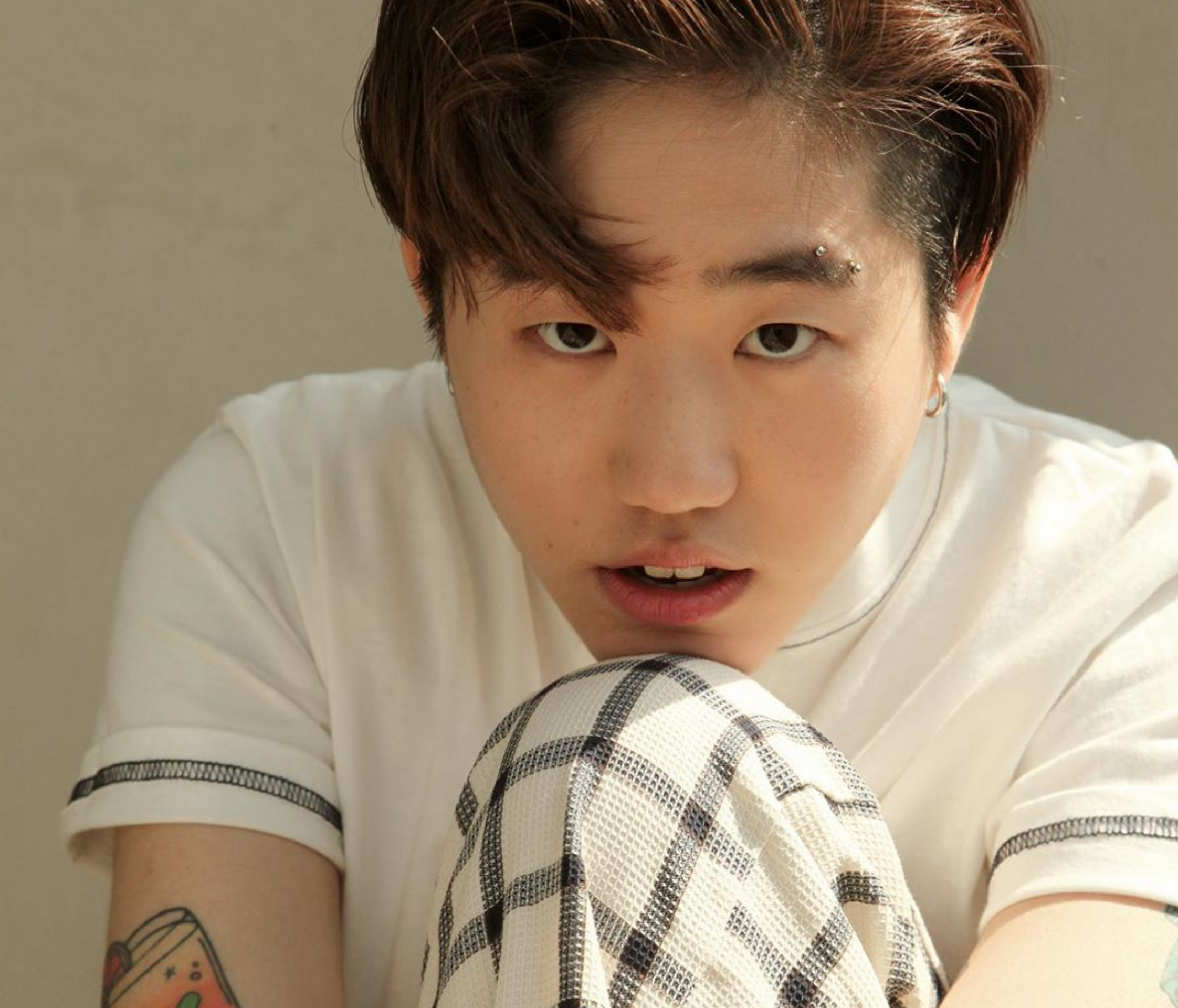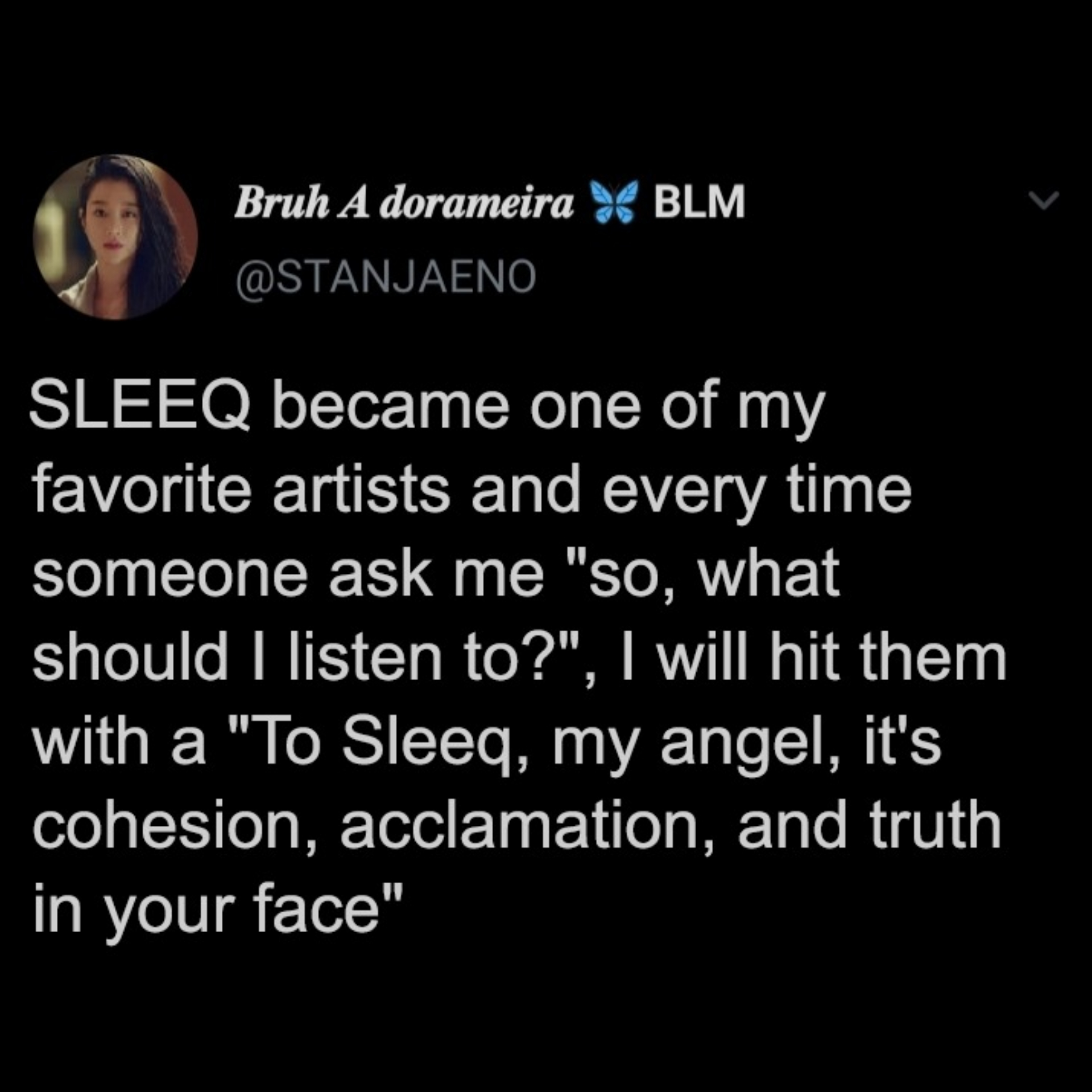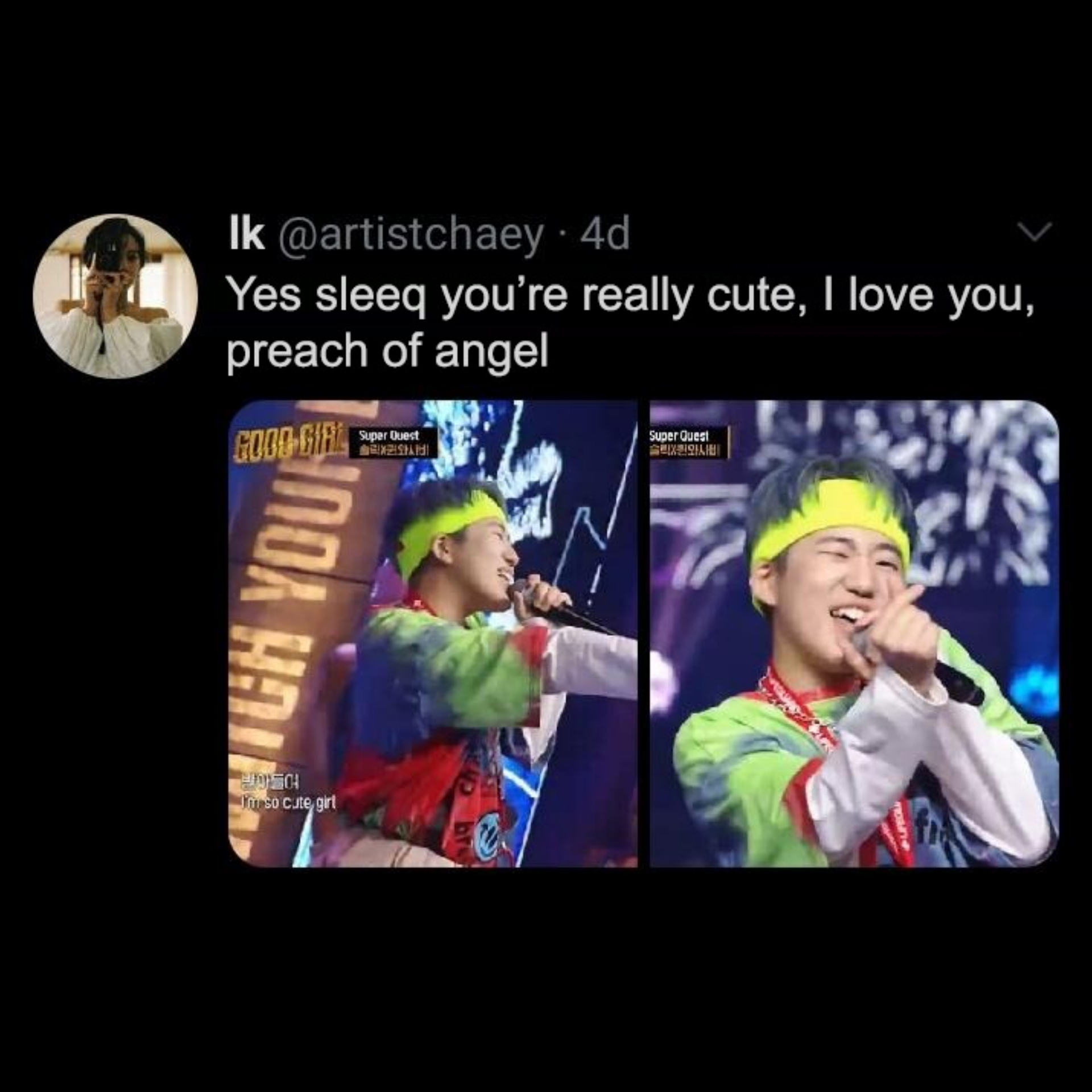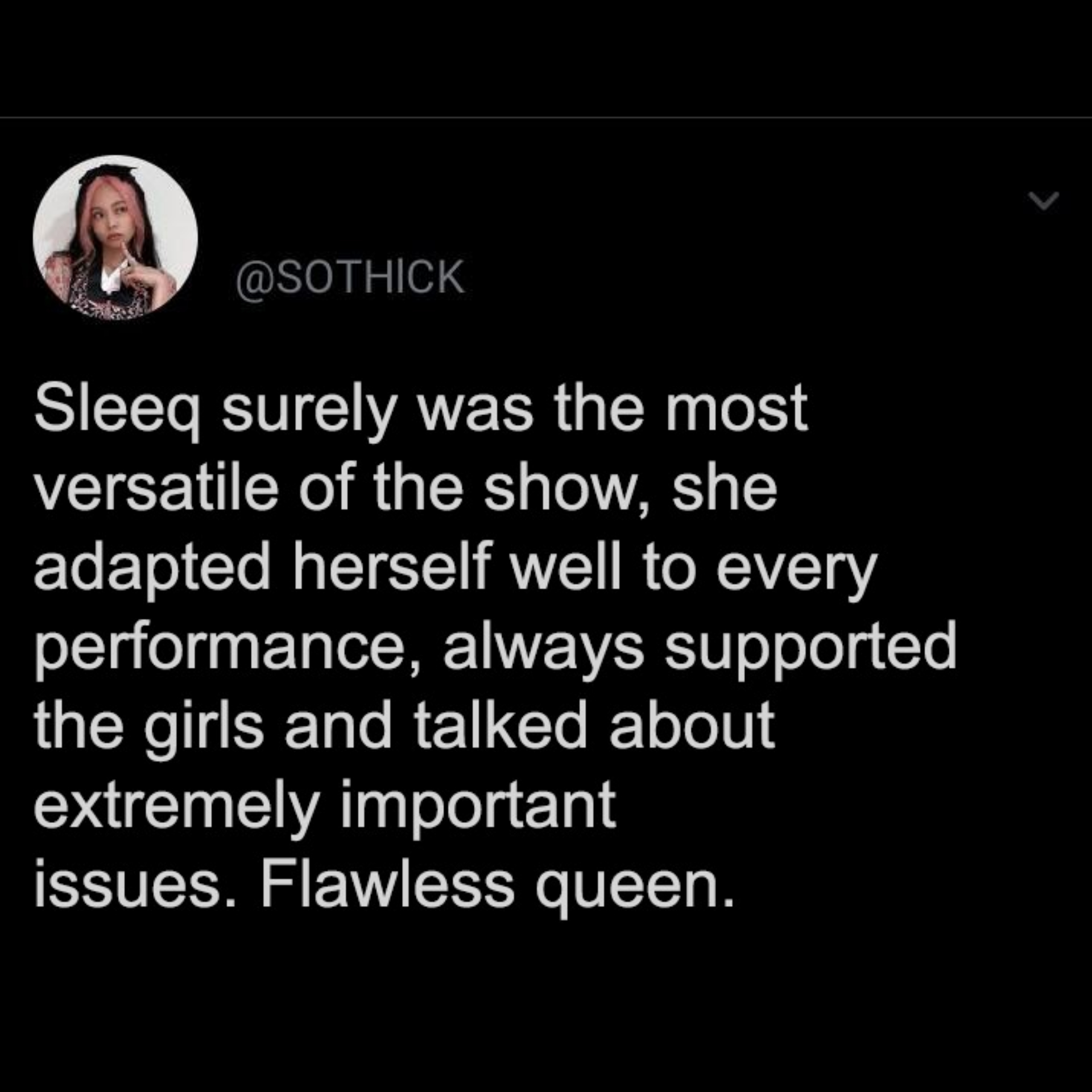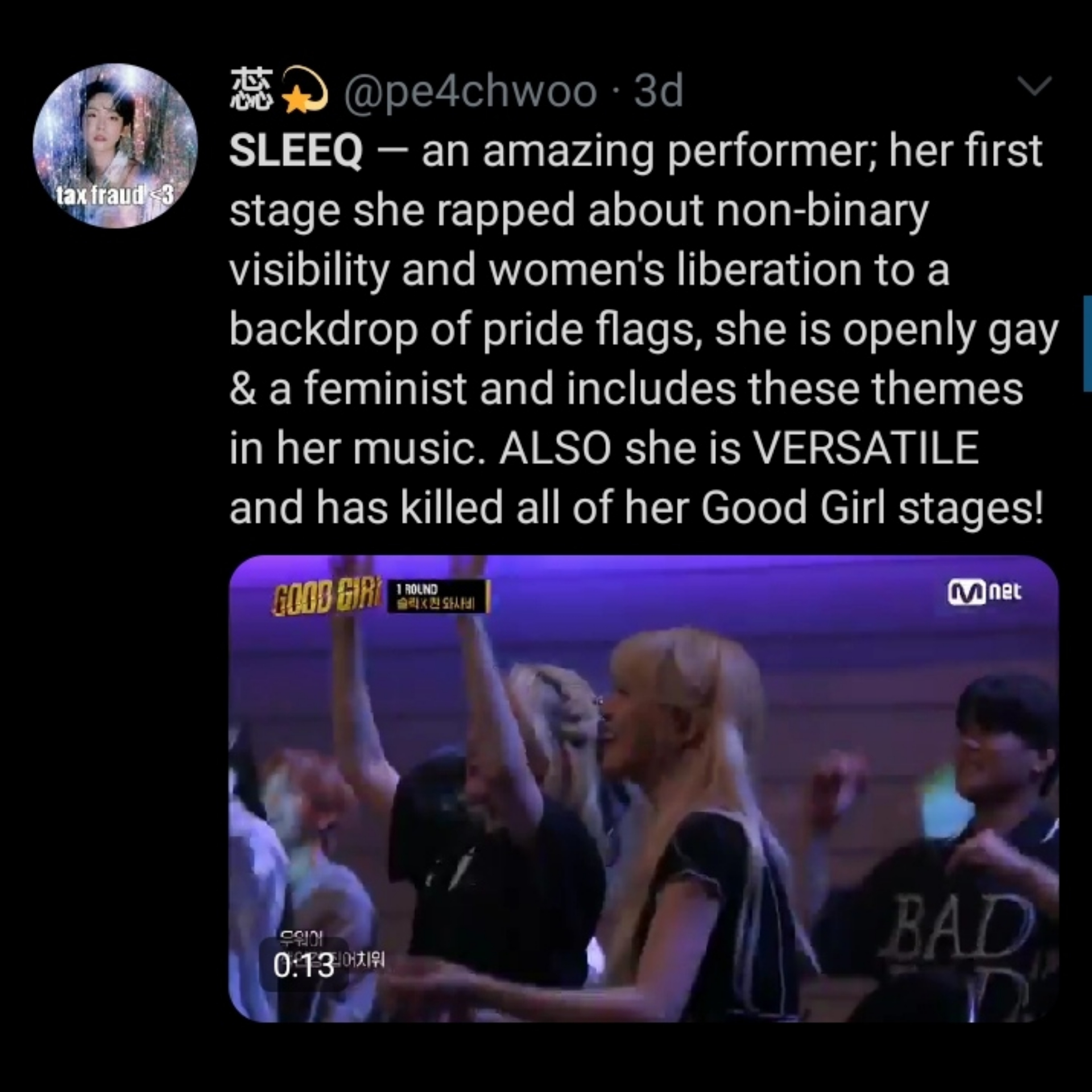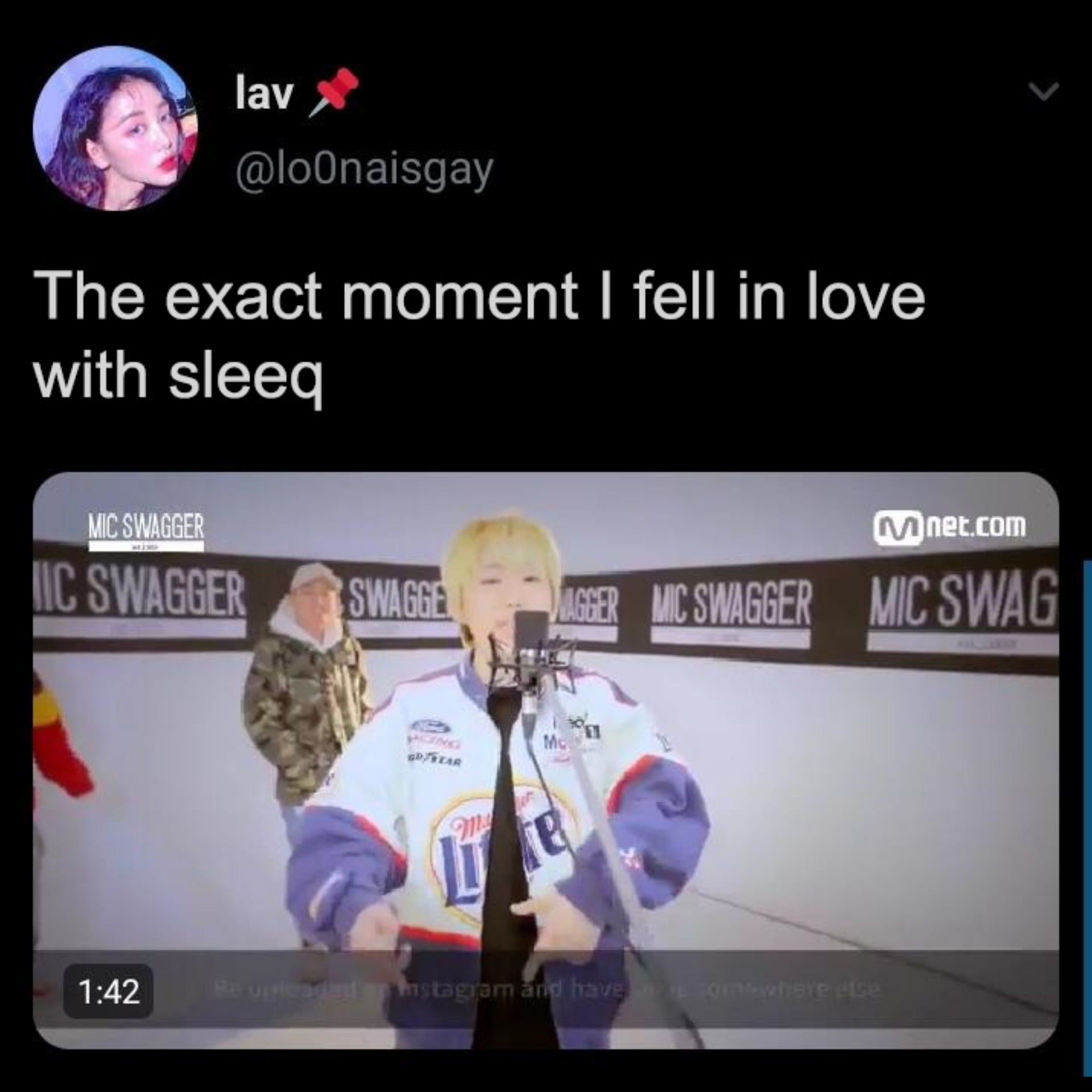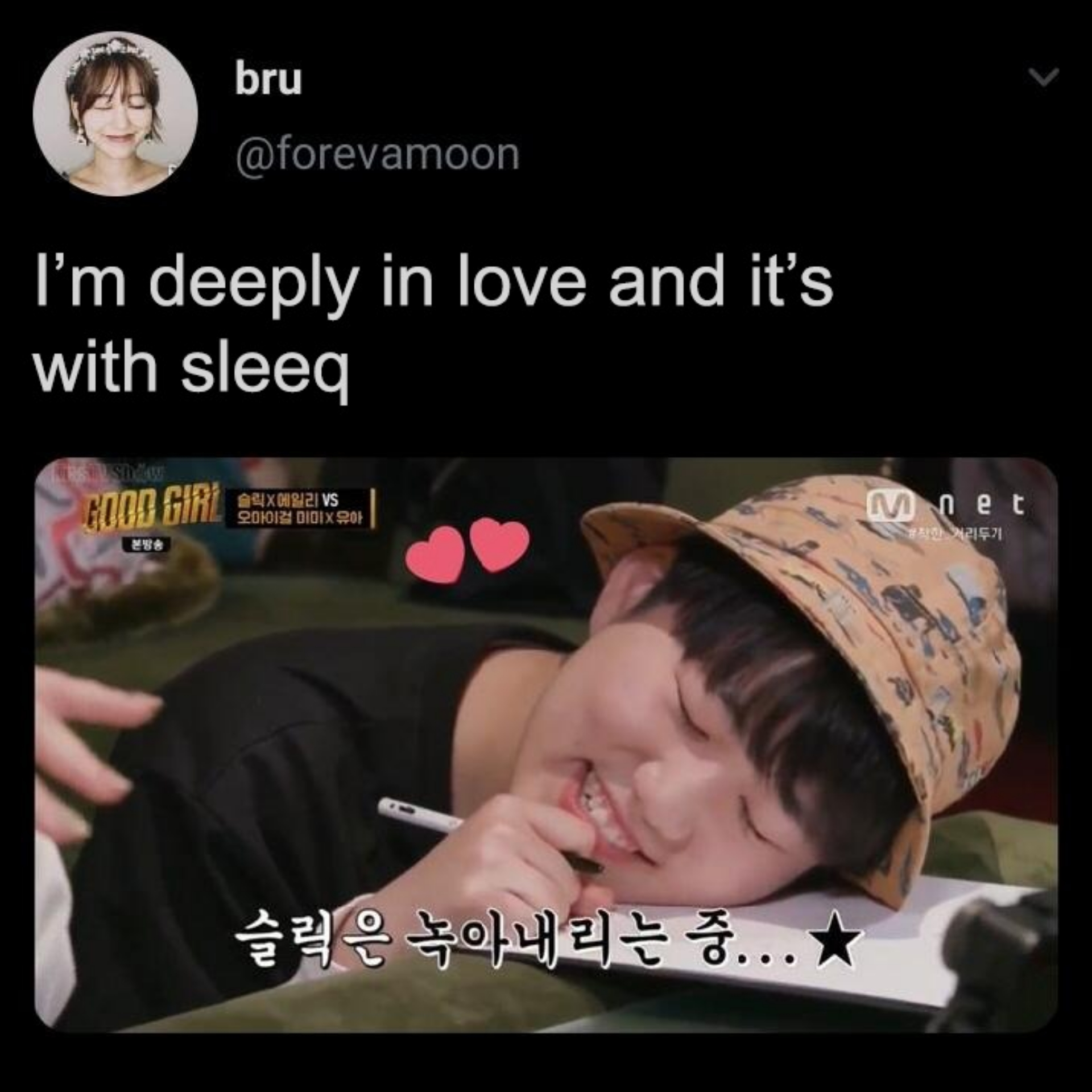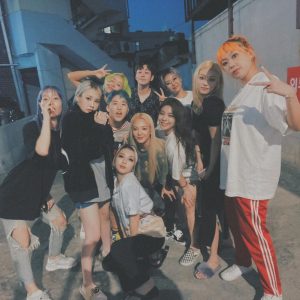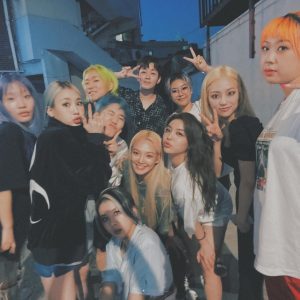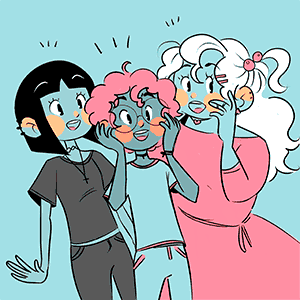In an exclusive interview, rapper Sleeq talks about her experiences during Good Girl, her journey through feminism and even how she became vegan.
Feminist and an openly advocate of LGBTQ+ rights, the rapper Sleeq hit the international media back in 2018, when she countered, through rhymes, harsh and unfounded criticism about the feminist movement. Since then, the attention and admiration she captivated from the global audience has been only increasing. And her most recent participation in Mnet’s Good Girl TV show, has potentialized what has been coming true in recent years.
In this exclusive interview with K4US, Sleeq shares a bit about how her life has changed since 2018, from her trajectory in music and in social activism to new paths on South Korean TV and on Good Girl. Check it out!
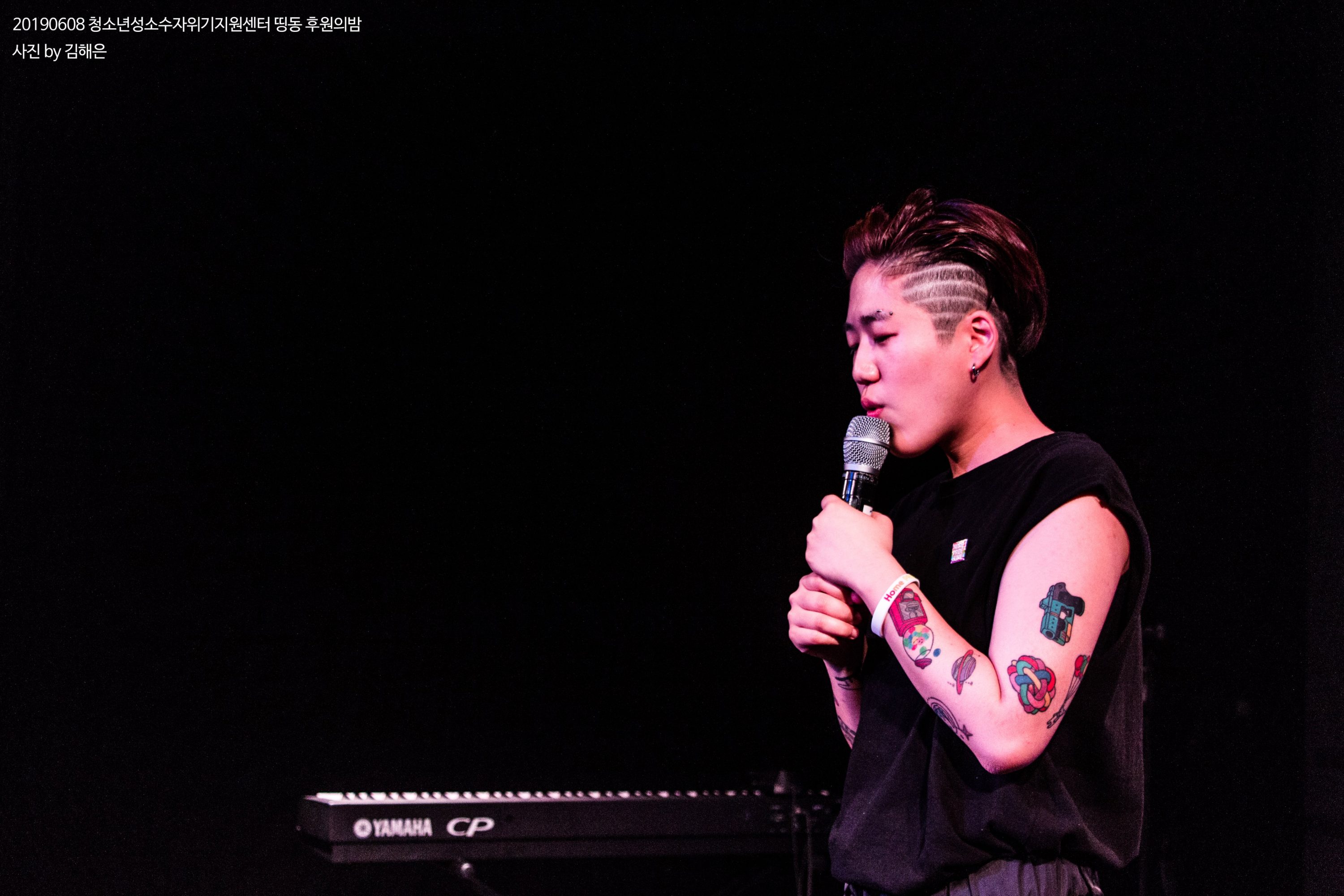
First of all we would like to say that we’re very happy to talk to you again. The last time we talked was in 2018 about that diss track exchange about feminism you took part in. Since then, what have changed in your personal and professional life?
I had a little more time to focus on myself. I’ve been supported by many people since the diss match, but I don’t think I’ll ever make such another track personally. Of course, “equalist” is a song made out of the feelings of anger and solidarity of the times, not personal feelings, but I want to focus more on my own life and make music in the future rather than focus on other people’s actions.
We were taken out of notice when we saw your name on Mnet’s Good Girl line-up. In the first episode, we realized that some artists that were on the show were also surprised by your presence there. How did you come to the conclusion that it was a good idea to take part in this project? What about Good Girl made you make up your mind on participating on it?
When the Good Girl production team called, I decided to appear after hearing that it was not a contest program but a program that collaborated with other female artists. When I first heard the explanation, I didn’t know it was such a big project, and I thought it would be a program that would introduce many female artists who didn’t appear on TV, just like me. So other cast members, and even I, were very surprised during the first shoot. I worried a lot about myself after the first shooting, but I had a better time than I thought.
Since your first appearance on the show, you were very honest about who you are. You put out LGBTQIA+ pride flags on the stage, you sang about human rights and social minorities. Did you feel pressured or afraid about the audience’s reaction to this?
I’ve been talking about social minorities for years. Attending numerous human rights events and continuing to speak out in interviews. I thought there was no reason to be wary of appearing on the show. In fact, the defensive perception of social minorities prevalent in Korean society is rather too familiar to care much. However, after finishing the stage, I thought that the cast and the audience who consume pop music might take this message strangely. While preparing for the stage, I was so nervous about the performance in a strange environment that I couldn’t think of anything else.
On “Here I Go” you speak up for feminism and the LGBTQIA+ community, social causes that has been gaining strength not only in Korea but all around the world. How did you get into this guidelines and, for you, what is the importance to give visibility to these subjects in the mass media?
By 2015, there was a big social attention on feminism in Korea. I started studying feminism at that time, too, and since then I have encountered many discourse on social discrimination with social minorities, such as cross-feminism, queer feminism, and non-genism. I’ve been a song-maker for my life since then, and I still live like that. Ever since I became a feminist, I couldn’t help talking about feminism in my songs, and so I’ve become a feminist rapper. And luckily, I got to appear on TV and became a person who talked about minority human rights through the mass media. In my personal context, I can say that my way of life somehow attracted the attention of many people rather than doing things intentionally with a cause.
The attention and admiration for you from the Brazilian and international audience only increased since the beginning of Good Girl. Your work linked to the commitment to these social causes mean a lot to the communities you defend. How do you feel, knowing that your points of view and your work are impacting so many people in so many different places?
Since appearing in Good Girl, I have received many messages of support from various countries around the world. It’s really amazing and sometimes it all comes down to being unrealistic. I don’t know if I’ve influenced them, but their cheering and support are affecting me too much. I could live with more courage. I’d like to take this opportunity to thank them.
Good Girl has also revealed a Sleeq that many people didn’t know. Did you know that you would have to adapt to face new challenges when you decided to take part on the show? What was your biggest achievement during the program?
In fact, I don’t usually watch TV at all, so I didn’t think much about what would happen and how I would be seen by people beyond the camera while appearing on a big-scale show called Good Girl. When I arrived at the set, I was given work to do, and I just did my best to carry out the mission. Luckily, many people liked me and I had a great time with the Good Girl members who filmed with me. Personally, it was the first time in a long time that I participated in a team project, which was a great opportunity to understand the music industry from a variety of perspectives, different from making music as a solo musician and an indie musician.
*Adapted according to the language
You and the other Good Girl members seem to have developed a genuine friendship and connection during the TV show. Did you ever fear that an environment of female rivalry would be created? Was it hard for you to get close to them, considering the diverse personalities amongst the girls? Which Good Girl you got the closest to?
One thinks that anyone has their own personality and life context, and that they can somehow get along well if they don’t check each other on purpose. Since they are all women, I never thought that a competitive structure would be formed especially, and I became close to them so that my introverted personality would not be a burden to other Good Girl members. They were all so warm and friendly people, so they got along well not only with my introverted self but also with all the others. I get along with everyone so well that it’s hard to say that I’m closest to anyone. The first member I got close to is Queen Wasabi. We happened to use the same waiting room, so we could talk a lot for the first time.
We heard from other interviewers that it’s necessary to provide spaces for women to take in the underground South Korean music scene. Do you believe that Good Girl can help creating a all-female network?
The solidarity, love, and chemistry shown by the cast in Good Girl have given new fun to many people compared to other programs that were highly competitive. If collaboration and teamwork programs like Good Girl are created and loved, there could be a new trend of collaboration in the Korean pop music industry.
Feminism, LGBTQIA+ community and veganism are some of the issues you stand up for. Were the other Good Girls open to discuss them with you? Have you had the opportunity to deepen this type of discussions?
Good Girl members also respected my belief system that I revealed. At first, I talked about so many things at once that they felt a little strange, but they got interested in it little by little, and we talked about feminism and veganism together during the middle of the shoot.
Speaking of veganism, we would like to know a bit more about your relationship with this lifestyle. South Korea seems to have eating habits very much based on meat consumption, is it really like that? How was the process of decision-making and adaptation to veganism for you?
Korea has a very solid carnivorous myth historically. Since the past, when it was a small country, the desire for meat was deeply rooted in culture, and until now, when meat became a default food culture, cultural praise for the act of eating meat is very dominant. I have also been domesticated in carnivorous myths since I was a child, and I never had the chance to know the true nature of carnivorous. Then, through Netflix and YouTube, I was able to learn the truth of the carnivorous myth, and I soon became a vegan. It is now the solid carnivorous culture of Korean society that makes us thoroughly unaware of carnivorous myths and veganism. I think a lot more people would be vegetarians than they are now if they knew.
We know that in South Korean entertainment, the female figure that gains the most attention is the one that fits into a specific beauty standards. Have you ever felt that you had to fit into these standards as well? How do you feel about being an woman that defies these standards on the media nowadays and serves as a new model figure to Korean women?
As a woman living in Korea, I could not be completely free from the social femininity of Korea. Even though studying feminism and women’s human rights, it was not easy to get rid of stereotypes about femininity that had been in my head since I was young. If I were to appear in the TV media five years ago, I might have appeared in a much more social feminine form than I am now, either by coercion or by indecision. But now I am fully aware of the perception of my outgoing appearance and of the social gaze that suppresses women’s outward appearances, and I am well aware of what kind of reaction I will get when I appear on TV looking the way I like and want to. Some may be unfamiliar with me and others may criticize me, but I hope that someone will be able to see me and gain some confidence in living as themselves.
You’ve tried a lot of new things on Good Girl. Do you believe that this experience will influence your next projects? As the TV show comes to an end, can we expect new music or any kind of new works?
After appearing in Good Girl, I rather wanted to make a song as I wanted. After many attempts, the ‘Sleeq’s music should be like this’ issue has been removed, and I want to make more diverse messages into more diverse genres of music.
We know that right now it’s not possible, but the Brazilian fans wants to know: would you like to perform in Brazil?
To encourage you a little, we will leave here the beauty of four places in our country. Which of these destinations would you like to visit the most if you came to Brazil?

Of course I want to perform in Brazil. Good Girl member Jiwoo (KARD) told us about the great passion of Brazilian audiences. I was envious of her having performed there, and if I have a chance, I would like to perform at any time, anywhere in Brazil, and at a place where music lovers gathered.
No second thoughts! Answer the following phrases with the first thing that comes to your mind.
A tattoo to do next: Flower
A funny memory from Good Girl’s backstage: Everyone is addicted to TikTok.
Artist who inspires me: 선우정아/ Sun Woo Jung
A song that doesn’t leave my playlist: PREP – Cheapest Flight
A tip to face social distancing: Watch ‘Good Girl’ at home
For this interview we invited khhfemmes fanbase to help us. It’s a fanbase whose work aims to promote female underground artists and they left a message to SLEEQ in the name of the rapper’s fans:
I really wanted to be able to tell her that she represents something very special for both me and khhfemmes. That she motivated and inspired me for years with her music and I’m sure it wasn’t just me.
KHH Femmes BR
And let her know that there are MANY fans in Brazil who love, admire and cherish her. She is our baby that we will always care for, protect and defend!
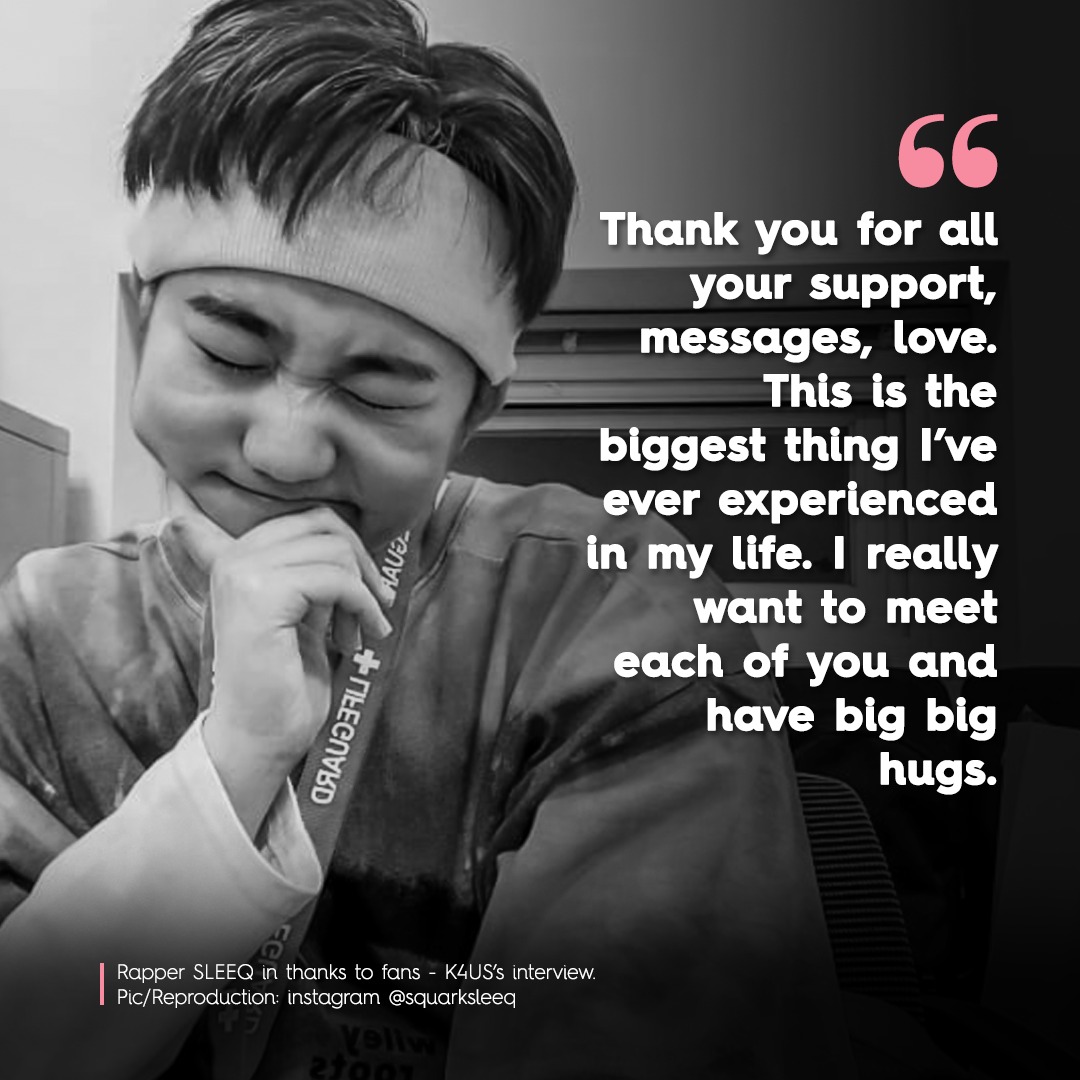
You might also like: SLEEQ & JERRY.K: feminism in K-Hip Hop
We very thankful to Sleeq and Daze Alive avaiability as well as for the help of KHH Femmes BR and our angel and translator Ely.
Interview by the K4US Editorial team.
Do not use this content without linking and crediting our work!
 Português
Português English
English 한국어
한국어